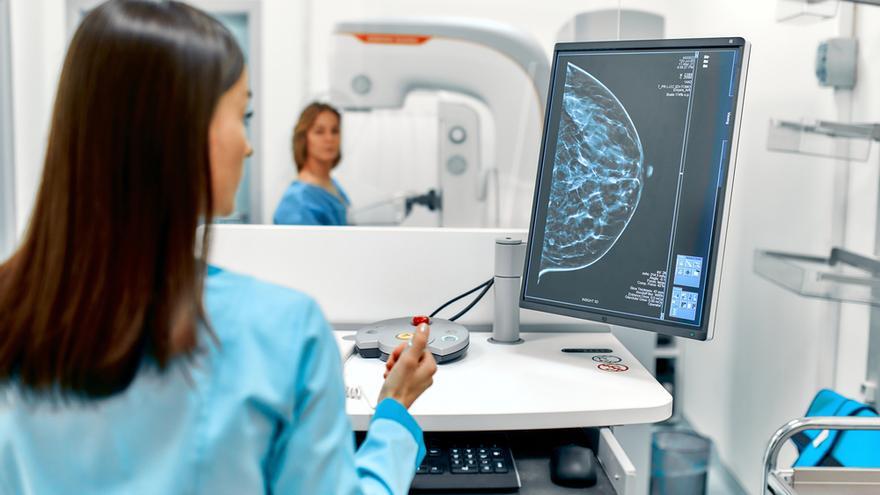One of the many concerns of women who receive the blow of knowing that they have breast cancer before the age of 40 is whether they will be able to become mothers, especially if they have not had any children, given that treatments against cancer cells can stop the functioning of the ovaries and prevent pregnancy. But a macro study worldwide, which has analyzed data from almost 5,000 women, in 78 cancer centers, over 20 years, indicates that they can undergo assisted reproduction techniques before starting treatment and, in this way, increase your chances of being mothers later, even women who have genes that increase the risk of cancer and relapses.
The study, presented at ESMO Breast Cancer 2024, the European cancer congress held between May 15 and 17, indicates that fertility treatments also do not have negative consequences on pregnancies of these patients or their babies.
“This study provides the first test that the use of fertility procedures is sure in young women with alterations of the BRCA1 or BRCA2 geneswhich increase the risk of developing breast cancer and other types of cancer,” explains Matteo Lambertini, associate professor and consultant of Oncology at the University of Genoa and the IRCCS Policlinico San Martino Hospital in Genoa (Italy), in the presentation of the study.
Mutations in these genes imply a greater risk of suffering from breast and ovarian cancer and at younger ages than people who do not have said variant. Its origin is, mainly, hereditary and are known colloquially as the ‘Angelina Jolie’s genesince the actress underwent preventive surgery to completely remove her breasts after discovering that she had said mutation.
In Europe, around 557,000 breast tumors are diagnosed each year, 34,000 in women under 40 years of age; of them, between 10% and 15%, have BRCA mutations
The study
In Europe, around 557,000 breast tumors per year, 34,000 in young women under 40 years of age. Of them, between 10% and 15% have BRCA mutations. Since the incidence of breast cancer with this mutation in young people is not high, we have resorted to everyone in order to recruit a sufficient number of study participants.
Thus, it has been possible to compare the evolution in 107 patients who became pregnant with assisted reproduction techniques and 436 who conceived naturally. The results show that there are no significant differences in the recurrence of breast cancer among each other, after undergoing tests for just over five years after pregnancy. The study also found no important differences in the gestation or subsequent development of the babies.
“The finding provides truly reassuring information for young patients who wish to become mothers and is very useful in clinical practice”
Co-author of the study
The discovery provides informationreally reassuring” for young patients with breast cancer who want to be mothers and it is “very useful” in clinical practice, since doctors will be able to advise them when making decisions about their fertility, says Ann Partridge, Harvard professor, vice president of the Dana-Farber Cancer Institute, oncologist at Brigham and Women’s Hospital in Boston (United States) and co-author of the study.
Fertility treatments
The usual way to preserve fertility in these patients consists of freeze your oocytes or embryos before starting breast cancer treatment, but these techniques usually involve the use of drugs that increase levels of estrogen. Hence, there is concern in the medical community about whether these reproductive treatments, especially in patients with mutations in the BRCA genes, increase the risk of hormone-sensitive cancer or increase the possibility of relapse.
From now on, “in light of these results, when we counsel a woman with these variants, we will be able to safely discuss with her the use of fertility preservation before starting treatment, without further ado.” worry”, explains Lambertini, who is convinced that the discovery will have immediate involvement in clinical practice.
This study adds to another Advance important for young patients who want to be mothers: research that just a year ago showed that patients can pause your treatment against cancer for a maximum of two years to seek pregnancy and this parenthesis does not increase the risk of relapse.

